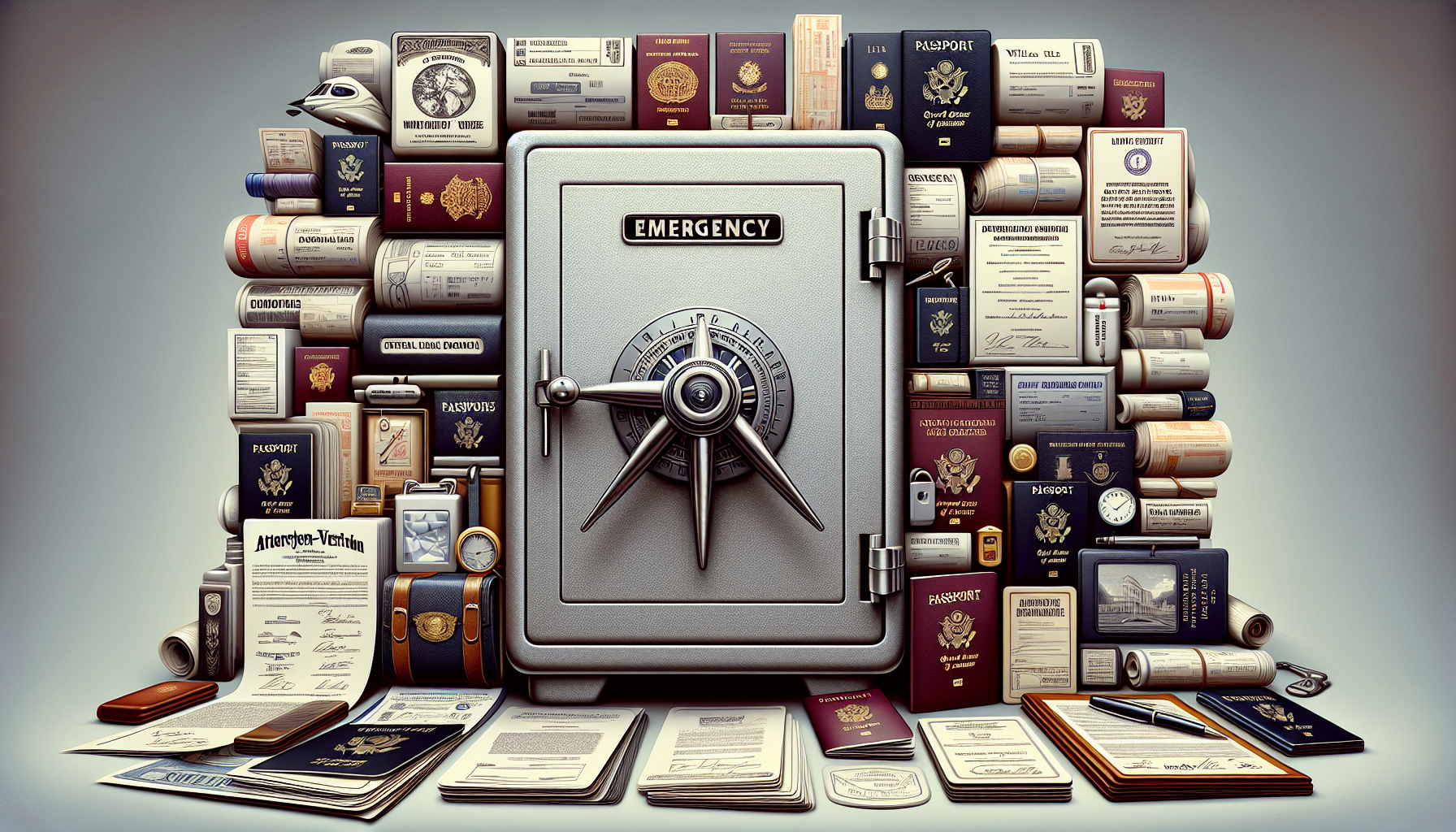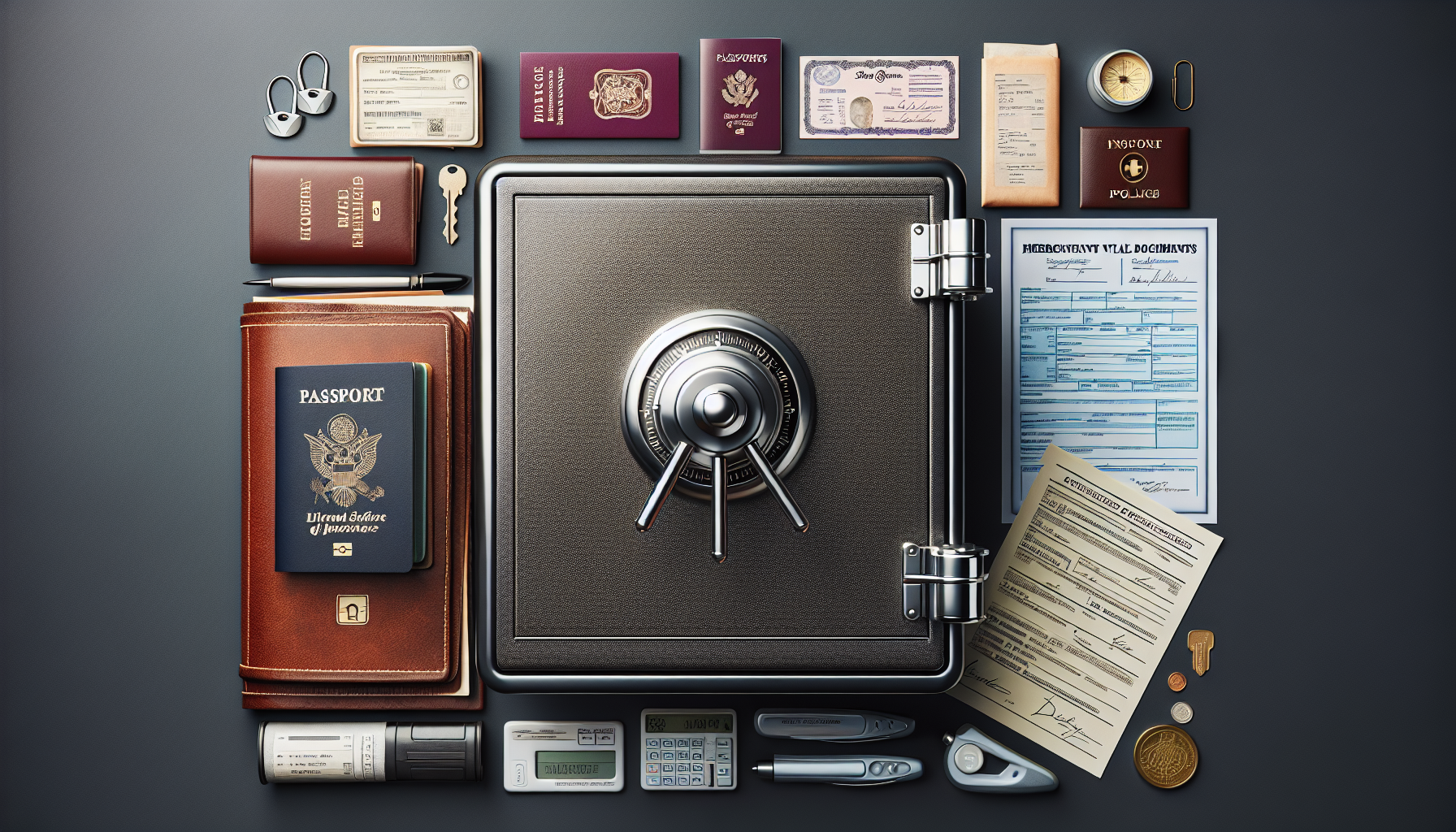In times of unexpected emergencies, it is crucial to be prepared with the right legal documents to protect yourself and your loved ones. From medical directives to power of attorney, there are several essential legal documents that can help navigate these challenging situations with ease and peace of mind. Discover the most important legal documents you should have on hand during an emergency, ensuring that your wishes are respected and your affairs are taken care of in the most efficient manner possible.
Emergency Contacts
In an emergency situation, having the right people to contact can make all the difference. Your family and friends should be at the top of your emergency contacts list. Make sure to include the phone numbers of your immediate family members, such as your parents, spouse, and children. Additionally, include the contact information of close friends who you trust and can rely on in times of crisis.
Doctors and medical professionals are also important contacts to have readily available in case of an emergency. Make a list of your primary care physician, specialists you regularly see, and any other medical professionals you may need to reach out to. Ensure you have their names, phone numbers, and addresses handy.
Emergency services should always be a part of your emergency contacts list. In times of immediate danger, such as accidents or life-threatening situations, you should call the local emergency services number. Find out the emergency services number for your local area and ensure it is easily accessible in case of need.
Personal Identification
When any emergency arises, having your personal identification documents readily available is crucial. These documents not only help verify your identity but also assist in obtaining the necessary assistance or medical care.
Your driver’s license or ID card is an essential identification document. It serves as proof of your identity and allows you to operate a vehicle legally. Make sure to keep a copy of your driver’s license or ID card in a safe and easily accessible place.
A passport is another vital document to have in case of an emergency. It serves as an internationally recognized identification document and may be required for travel or identification purposes. Keep a copy of your passport in a secure location.
Your Social Security Card is significant for various purposes, including employment, taxation, and government benefits. Ensure you have a copy of your Social Security Card readily available in case of an emergency.

Healthcare Proxy
A healthcare proxy allows you to designate someone to make medical decisions on your behalf if you are unable to do so. This document is crucial in situations where you may be incapacitated or unable to express your wishes.
A medical power of attorney grants someone you trust the legal authority to make medical decisions in your best interest. Discuss your healthcare preferences, values, and treatment options with your chosen healthcare proxy.
A declaration to physicians, also known as a living will, outlines your medical treatment preferences in advance. This document ensures that healthcare providers follow your desired treatment choices if you are unable to communicate them yourself.
Advance Directive
An advance directive is a comprehensive document that covers various aspects of your healthcare choices in advance. It provides specific instructions for medical care and ensures that your wishes are respected when you are unable to express them.
A durable power of attorney for healthcare designates someone to make medical decisions on your behalf. This document goes beyond immediate emergency situations and covers long-term medical choices.
A do not resuscitate (DNR) order is a medical directive that requests healthcare providers not to perform cardiopulmonary resuscitation (CPR) if your heart stops or you cease to breathe. Discuss this option with your doctor and ensure your DNR order is readily accessible.

Personal Medical History
Having your personal medical history easily accessible can be essential in emergency situations. It provides crucial information to healthcare professionals and enables them to provide the most effective and appropriate care.
Include a comprehensive list of your medical conditions, including chronic illnesses and any significant past medical history. This information enables healthcare providers to understand your overall health status better.
Make sure to note any allergies you have, including medication allergies, food allergies, and environmental allergies. This information is crucial to prevent potential allergic reactions during treatment.
Immunizations are an essential part of preventive healthcare. Keep a record of all your immunizations, including vaccines received and dates administered. This information can aid healthcare providers in determining your current immunization status.
Create a detailed list of all the medications you are taking, including prescription drugs, over-the-counter medications, and any supplements. Include the name, dosage, and frequency of each medication. This information is vital to avoid potential adverse drug interactions.
Health Insurance Information
Health insurance information is crucial in emergency situations to ensure smooth access to healthcare services and avoid any financial burdens.
Keep your health insurance cards readily available. These cards contain important policy identification numbers and contact information for your insurance provider.
Be familiar with your health insurance policy details, such as coverage limits, copayments, and deductibles. Understanding your policy can help you make informed decisions and avoid unexpected expenses.
In addition to your insurance cards, have an emergency contact for claims readily accessible. This contact should be able to assist you in navigating insurance-related matters during an emergency.

Financial Information
Financial documents are essential to secure your assets and ensure a smooth transition of financial responsibilities in emergencies.
A will and testament outline your wishes for the distribution of your assets after your death. It is crucial to have a legally valid will in place to protect your loved ones and ensure your assets are distributed according to your wishes.
A financial power of attorney designates someone to handle your financial affairs if you become incapacitated. This document grants the designated person authority to make financial decisions on your behalf.
Include bank account details, including account numbers and contact information, in your emergency preparedness. This information is necessary to access funds or manage your financial obligations in emergencies.
If you have any investment accounts, provide the details, such as account numbers and contact information, for easy access during unforeseen circumstances.
Debts and liabilities information should also be documented. Include any outstanding loans, credit card debts, or mortgage obligations. Having this information readily available ensures that your financial responsibilities can be addressed promptly.
Property Ownership
Documents related to property ownership are crucial in emergency situations and can help protect your assets and facilitate necessary actions.
Property deeds act as legal ownership documents for real estate properties. Keep copies of property deeds in a safe place or with your attorney.
Vehicle titles establish ownership of automobiles. Ensure you have the necessary documentation, such as vehicle titles, readily accessible in case of emergencies or unexpected circumstances.
Mortgage documents should be readily available for homes or other properties you own. These documents contain crucial information about loans and property ownership.

Insurance Policies
Insurance policies protect against potential risks and provide financial security in emergencies. Make sure you have the necessary insurance policies and relevant documents in order.
Homeowner’s insurance protects your home and its contents against damage or loss due to covered events. Keep a copy of your homeowner’s insurance policy in a secure location.
Auto insurance is essential for any vehicle owner. Keep a copy of your auto insurance policy, including contact information, readily accessible in case of accidents or other vehicle-related emergencies.
Life insurance provides financial support to beneficiaries in the event of your death. Keep a copy of your life insurance policy and contact information for your insurer in a secure location.
Disability insurance offers financial protection if you become unable to work due to a disability. Make sure to have your disability insurance policy details documented in your emergency preparedness.
Legal Agreements
Legal agreements related to family matters and personal relationships should also be included in your emergency preparedness.
Your marriage certificate serves as legal proof of your marital status. Keep a copy of your marriage certificate in a secure location.
If you have gone through a divorce, a copy of the divorce decree should be readily accessible. This document outlines important details regarding the dissolution of the marriage.
In cases of child custody, keep a copy of the child custody agreement readily available. This document specifies the arrangements for custody and visitation rights.
If applicable, a prenuptial agreement outlines the division of assets in case of a divorce or death. Keep a copy of this agreement in a secure location.
Taking the time to gather and organize these important legal documents can provide you with peace of mind in emergencies. Ensure you inform trusted individuals of the location of these documents to ease the process for them in case of necessity. Remember, preparation is key in handling unexpected situations efficiently and effectively.


